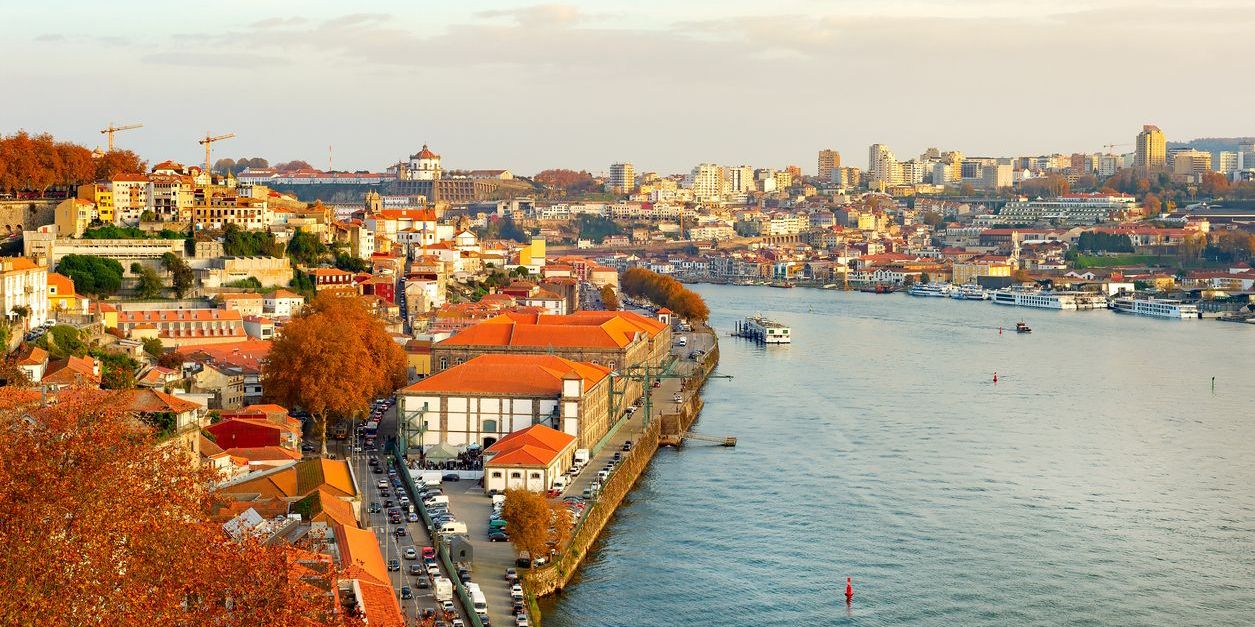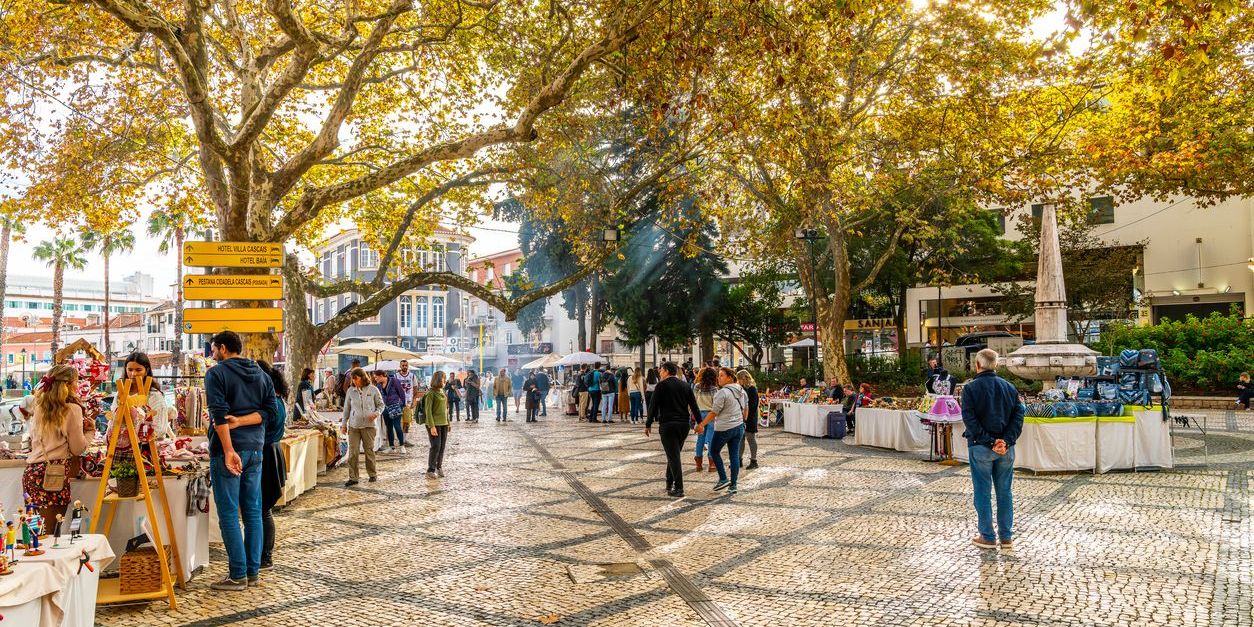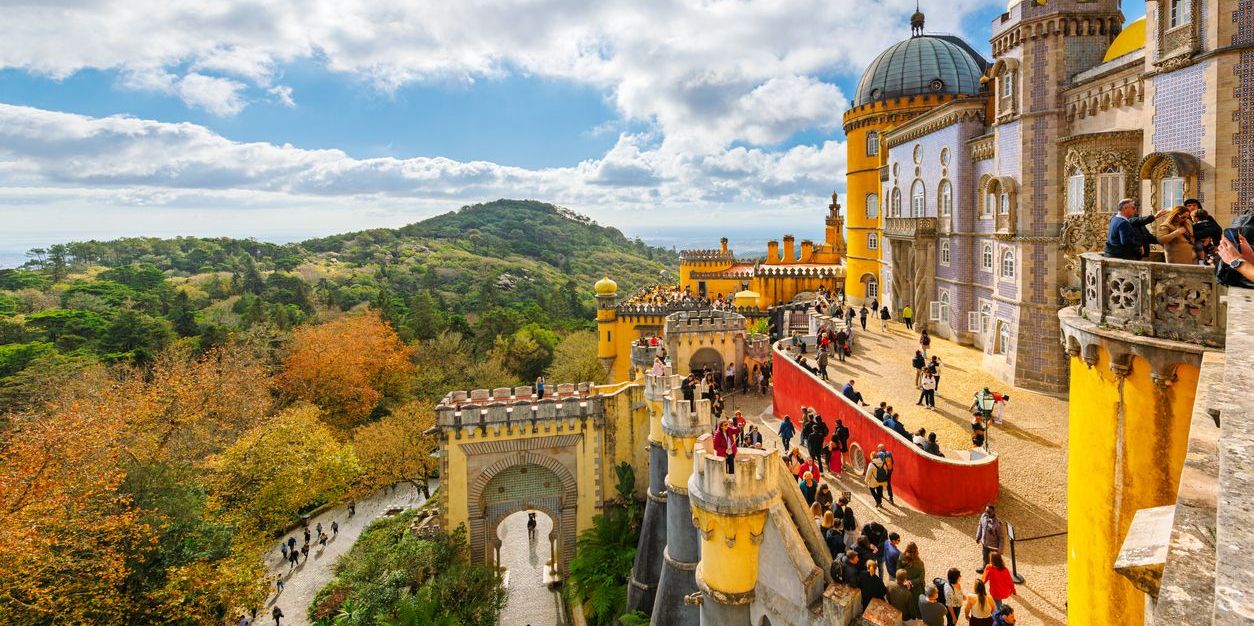Portugal in November doesn’t come with blazing heat or crowded beaches, but that’s the charm. This is the shoulder season: quieter, calmer, cooler, and easier on the wallet. You’ll find locals reclaiming their towns, queues at tourist spots disappearing, and a gentler pace of life. It’s a month for travellers who don’t mind swapping swimming trunks for a light jacket and who like the idea of having more space wherever they go.
What weather to expect in Portugal in November
The weather in Portugal in November is mild compared to much of Europe. Average daytime temperatures hover around 15–20°C in the south, while the north and interior can feel noticeably cooler, often dipping to 10–12°C. Rain is more frequent this month, particularly in Porto and the Douro Valley, but it rarely lasts all day. In Lisbon and the Algarve, sunshine still breaks through most days, giving you enough light and warmth to wander comfortably.
Sea temperatures are cooler now – roughly 17–19°C – so swimming is less appealing unless you’re hardy or in a wetsuit. But it’s still a great month for walking, cycling, and sightseeing without overheating. You can think of Portugal in November weather as autumn with Mediterranean perks.

What to pack
Packing for November means layers. You’ll want t-shirts and long sleeves for the daytime, plus a jumper or light jacket for cooler evenings. A waterproof jacket or compact umbrella is handy too, as showers can arrive quickly. Comfortable shoes are essential, especially if you’re tackling cobbled streets in Lisbon or hiking trails in Sintra or the Algarve.
It may seem like a no-brainer, but bring sunglasses. The sun is much higher in the sky than it is in northern European countries and is still quite strong. If you’re planning time by the coast, a windbreaker isn’t a bad idea. It’s not winter yet, but the Atlantic breeze makes itself known.
Events and festivals in Portugal in November
November is quieter on the events calendar, but a few stand out:
- All Saints’ Day (1st November): A public holiday where cemeteries are filled with flowers. It’s a good chance to see a more reflective side of Portuguese culture.
- Magusto Festival (early to mid-November): Celebrated across the country, especially in the north, this marks the chestnut harvest. Expect roasted chestnuts, new wine, and small village gatherings.
- LEFFEST (7-16th of November): The Lisbon & Estoril Film Festival, or LEFFEST, is an international event that attracts filmmakers and audiences from across the world.
These aren’t the huge street parties of summer, but they do offer a glimpse into Portugal’s seasonal traditions.

Top destinations still worth visiting
November cuts out the summer chaos, which makes exploring far more enjoyable. Here are some highlights that work well at this time of year:
Lisbon
The temperature in Lisbon Portugal in November tends to be around 15–18°C, making it comfortable for sightseeing. This is a great time to ride Tram 28 without being packed in shoulder to shoulder or to visit the Jerónimos Monastery and actually take your time inside. Cafés spill fewer tourists onto pavements, so you’ll find space to sip a bica (Portuguese espresso) in peace.
Our Lisbon Sightseeing Guide has more.
The Algarve
Summer crowds vanish, but the Algarve doesn’t shut down. Towns like Lagos, Faro and Tavira still tick over, restaurants stay open, and walking trails along the cliffs of Ponta da Piedade are even better without the heat. It’s also a great time of year for a golf holiday. You may even get the beaches largely to yourself. With sea temperatures around 18°C, getting in for a quick dip is definitely still possible at this time of year.
Read our guide on Algarve Holidays for more information.
Porto
Porto tends to be wetter and cooler in November, but the city feels atmospheric under grey skies. The Ribeira district glows at night, and the wine cellars across the river in Vila Nova de Gaia offer shelter and warmth. A port tasting on a rainy afternoon feels like the right way to do it.
Évora and the Alentejo
Cooler weather makes wandering around the Roman Temple of Évora and the region’s whitewashed villages far more comfortable. The Alentejo’s wide landscapes feel even more dramatic in autumn light.

Travel tips for the off-season
- Check opening hours: Some smaller attractions, restaurants, and beach bars scale back or close entirely in November. Bigger cities and resorts remain active, but it’s worth double-checking before you go.
- Lower prices: Accommodation is usually cheaper, and you’ll have better luck finding last-minute deals. Villas and apartments often cost significantly less than in summer.
- Transport is easier: Roads are quieter, ferries and trains less crowded, and you’re more likely to get a table at that restaurant you’ve read about without booking weeks in advance.
- Shorter days: Expect around 10 hours of daylight. Plan sightseeing for the morning and early afternoon, then settle in for slower evenings.
Why November is a great time to go to Portugal
Forget the blazing sun and crowded beaches. Portugal in November is about space and comfort, and the feeling that the entire country is yours to explore. The climate is still mild, the cities are lively without being overwhelming, and the landscapes feel green and refreshed after a long, dry summer.
So, if you like the idea of quiet streets, easier travel, cheaper accommodation, and having room to breathe, Portugal in November is a smart choice.
Now all that’s left is to book your stay. Allure Villas offers spacious, modern homes with private pools, stylish interiors, and all the comfort you want after a day on the road.
So, what are you waiting for? Find your perfect holiday home today

 Home
Home Our villas
Our villas About us
About us Services
Services Owners
Owners  Investors
Investors Join us
Join us About Portugal
About Portugal Loyalty Program
Loyalty Program Blog
Blog Contacts
Contacts
